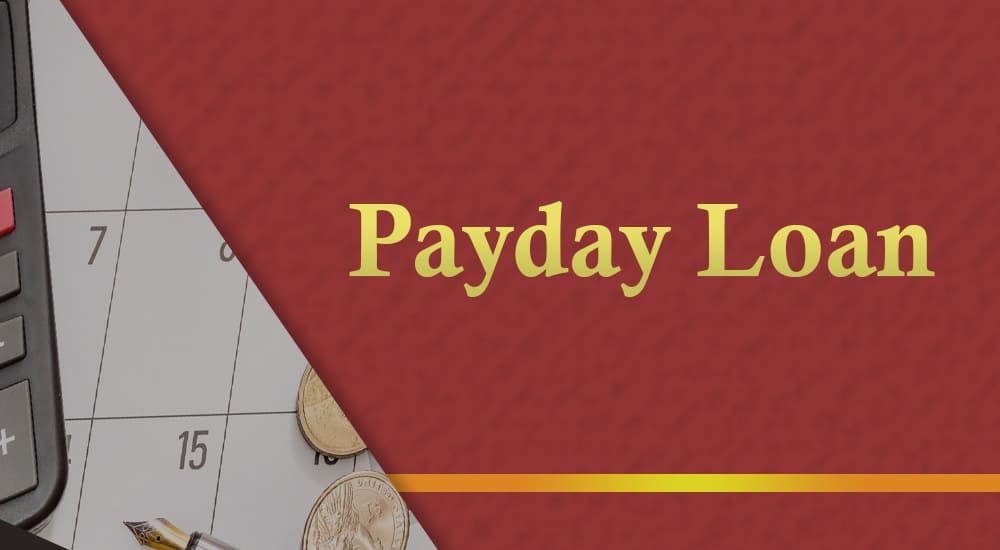Definition: A payday loan is a short-term loan given to borrowers until they receive their salary, pension, or social security payment and repay the loan. The loan depends on the borrower’s monthly income, and it comes with a high interest rate.
Although no fixed amount is defined for the payday loan, it is generally 500 USD or less and repaid in a single payment when the borrower receives a salary, pension, or social security payment.
Payday loans are also known as check advance loans or cash advance loans.
Getting a payday loan is easy, as lenders do not require any collateral. That is why these loans are also called unsecured loans. These loans don’t require a guarantee, and most times, lenders don’t care about the borrower’s credit history. This is why they carry a very high-interest rate and sometimes have hidden fees.
Financial experts don’t recommend payday day loans as they can create a debt trap for borrowers.
Characteristics of Payday Loans
- They are short-term loans.
- They carry high interest rates.
- Their value is low, depending on the salary.
- They are not tough on credit history.
Payday Loan Conditions
Payday loans are short-term loans and are supposed to be paid off as soon as the receiver receives a payment. Sometimes lenders don’t take interest as a percentage; they charge a fixed fee, for example, 30 USD for a 100 USD loan for one month.
Though payday loans do not require collateral, the lender may ask for proof of salary, pension, social security, and a signed check or permission to electronically withdraw funds from the borrower’s account.
Requirements for Getting Payday Loan
A payday loan can be applied online or offline. The requirements can be as follows:
- Age – The age of the borrower must be at least 18 years so they can sign the legally bound contract.
- Bank Account – Not all lenders emphasize having a bank account. Lenders ask for an account so they can transfer the funds electronically into the borrower’s account.
- Income Proof – The lender needs a letter from the employer as proof of job and salary. Some lenders may ask for a bank statement to see if the income is being transferred to the borrower’s account.
- Address Proof – Lenders require a home address, phone number, email ID, etc. They will use this address to contact buyers if any need arises. They can also ask for references.
Different Fees in Payday Loans
The first fee is the application fee that a lender charges for applying for a loan. Some lenders may charge origination or administration fees to cover their administration expenses.
Then, there is a late fee that a borrower has to pay if they don’t make the payment on time.
There is a renewal fee if the borrower wishes to renew the loan.
How to Get Payday Loan
Many small merchants provide payday loans. They can be approached anytime, online or offline, and borrowers can get the loan with minimal formality. Approval is quick after filling out the forms. The only requirement is proof of income and/or a bank statement.
The lenders decide on the loan amount based on the borrower’s monthly income.
Some merchants can ask for borrowers’ bank account details, but it is not required. Not having a bank account can cost borrowers more fees or higher interest rates.
Is a Payday Loan Legal?
As of 2022, 16 states in the United States have banned payday loans due to their predatory practices. Many other states have toughened laws regarding payday loans, but still, lenders find ways to lend money to borrowers.
Pros of Payday Loans
- Simple application process
- Fast approval and quick fund transfer
- No or little focus on credit score
Cons of Payday Loans
- High interest rate
- Hidden fees
- Short repayment terms
- The loan amount depends on one’s salary
Summary
Payday loans are short-term loans of low amounts and don’t require a strong credit history or collateral. However, the lenders charge high interest rates and high fees for these conveniences.
Because these loans require high fees and interest rates, it is recommended to avoid a payday loan unless the buyer is sure they will repay it in one payment once they receive their salary, pension, or social security payment.
